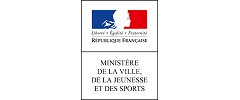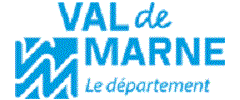Almaty Action Statement for Environmental Democracy
75 Environment and Civil Society Organisations present their views to Ministers
30.05.2005 |

Eco-Forum preparatory conference in Almaty
75 Environment and Civil Society Organisations present their views to Ministers
Download the full Eco Forum statement:
English (44 KB, pdf)
Russian (168 KB, pdf)
The Almaty Action Statement
Statement of the European Eco-Forum and other Civil Society organizations of the UN-ECE region.
We, 75 non-governmental organizations and representatives of civil society of Europe, Caucasus and Central Asia, gathered on the 22 and 23rd of May 2005, at the Second Meeting of the Parties (MOP) to the Aarhus Convention, agree on the following policy recommendations and priorities on effective implementation of the Aarhus Convention.
We recognize that the implementation of the Aarhus Convention and associated initiatives are critical to protect the environment and our rights and ensure the health, peace, and well-being of present and future generations.
We urge governments to renew their commitment to safeguard the Convention’s leadership role in creating environmental democracy.
In particular we would like governments to agree in Almaty on:
1. Strengthening National reporting and implementation
2. Access to Justice
3. Inclusion of GMO-related decision-making in the Convention
4. The adoption of Guidelines on Public Participation in International Forums
5. Strengthening the work of the Compliance Committee
6. Public Participation in Strategic Decision making
7. Capacity Building
8. PRTR Protocol
9. Future of the process
1. Strengthening National Reporting and Implementation
We welcome the first national reports on implementation of the Convention but regret that some were not submitted, (Albania, Romania, Cyprus and Malta). The reporting mechanism is an important element for practical implementation of the Convention.
At the same time, much can be done to improve the reporting by parties. Many national reports do not give an accurate picture of the implementation of the Aarhus Convention in the UNECE region. In response, several NGOs prepared their alternative reports, which deserve more attention by the parties.
We welcome those countries which applied a participatory process for the preparation of the reports. However, more should and can be done to make public participation in national reporting more effective. This includes a proper account to be taken of the comments received during the preparation of national reports.
We urge the parties to develop an improved format of reporting. The reporting system would benefit if based on uniform indicators. Such indicators are already being used in several regional and global initiatives.
The strengths and weaknesses identified during the reporting process should be taken into account in order to ensure a more practical implementation of the Convention.
2. Strengthening Access to Justice
More than 3.5 years after entry into force of the Aarhus Convention and 7 years after its initial signature, the Convention and related national legislation do not always fulfill their promises.
Information is sometimes provided, public participation is sometimes encouraged, and other rights are sometimes respected. But in countries or situations where the rights of environmental democracy are not respected, there is little that citizens can do about it – unless they have access to justice.
Unfortunately, individuals and NGO’s are often effectively barred from seeking justice in courts or other bodies for such violations. In such situations, the Aarhus Convention may be seen as consisting of two pillars and a broken stick.
As we said, regarding Article 9 of the convention, in the NGO’s Chisenau Declaration in 1999 at the First Meeting of the Signatories, “Without effective access to justice, the Convention will be a meaningless document.” We have called for action in our Declarations in Chisenau (1999), Dubrovnik (2000, and Carignano/Lucca (2002). It appears, however, that the Parties have not been listening. Regrettably, we have seen little or no progress on actually resolving problems of access to justice.
- We note that the Task Force on Access to Justice has documented the extent of limitations on access, as shown in the continuing existence of barriers, but has not been given a mandate to help solve the problem. We believe that the Task Force must be continued and given an expanded mandate.
- We ask that the Parties turn their attention – both collectively and individually – to the actual removal of barriers to justice, rather than just studying the problem.
- Furthermore, we ask specifically for financial support of citizen enforcement of the Convention and environmental laws – including firm commitments by donor countries to provide funding for legal consultation, advice and litigation centers in countries where it is most difficult for citizens and their organizations to go to court.
If the Parties are not willing to take such actions, we ask that they stop pretending that there is really a third pillar.
3. Inclusion of GMO-related Decision-making in the Convention
The introduction of Genetically Modified Organisms (GMOs) into the environment poses potential risks to health and environment and to the livelihoods of the public worldwide. Once released, its impact may be irreversible, and therefore it is crucial the public has a right to adequate access to information, public participation and access to justice on GMO decision-making.
In light of scientific uncertainty surrounding the safety of GMOs, and recalling Rio Principle 15, we call upon all Parties to the Aarhus Convention to act respecting fully the precautionary principle. Concerned about the proliferation of GMOs and the uncontrolled introduction into the Pan-European region, particularly in the EECCA region, we believe in the urgent need to implement comprehensive provisions on access to information, public participation and access to justice in all decisions related to GMOs.
The Aarhus Convention at present exempts GMOs from its public participation obligations. The 1st MOP decided to develop a legally binding solution to address this exceptional situation.
However, despite this unanimous decision by Parties and Signatories 2.5 years ago, negotiations on this have been extremely frustrating. We are deeply disappointed by the European Union’s stance on this issue in the context of the Aarhus Convention. While the European Union has itself one of the most comprehensive biosafety frameworks in the world, it is resisting strongly to grant the public the right for meaningful public participation and access to justice under the Convention.
We urge the Member States of the European Union to act as global leaders in promoting comprehensive biosafety frameworks worldwide, including public participation, and not to continue moving down a path of promoting weak biosafety frameworks in the non-EU region. The European Union must respect and seriously listen to the concerns expressed by the EECCA region, and agree to implement the most progressive and comprehensive provisions on access to information, public participation and access to justice on GMOs.
We again call upon all Parties and Signatories to support a progressive amendment - which specifies which GMO-decisions should fall under the scope of Aarhus - to the Aarhus Convention on GMO public participation. We must prevent that the Almaty Meeting of Parties from becoming an event where environmental democracy is losing out to pro-GMO interests. We believe this would mean a serious blow to the principles as well as the image of the Aarhus Convention and the credibility of the governments participating in it.
4. Adoption of Guidelines on Public Participation in International Forums (PPIF)
Since decisions important to the fate of the environment are taken at international level, it is very important that effective public participation is introduced or strengthened in international forums. This is not only relevant for international bodies especially set up for environmental purposes, but also for others, for example the World Trade Organisation and other financial institutions.
Therefore, it is very important that the Aarhus convention obliges its parties to promote the principle of the Aarhus Convention, to be applied at such international forums (article 3.7)
We were encouraged by the decision of the 1st MOP in Lucca to assist parties to take such action. However, the negotiations concerning the PPIF guidelines have been difficult, and there is an increasing reluctance from the Parties to do what they promised.
The guidelines being produced need to be straight-forward, clear and explicit regarding the needs for public participation in international forums. They should include proposals including all three pillars of the convention including mechanisms to allow the public to challenge violations or non-implementation of its own rules and procedures regarding access to information, public participation, and failure of international forums to ensure the implementation of their environment related decision.
We find it highly surprising that some Parties argue that these Aarhus guidelines should be drafted only in consultation with the Conventions and international forums. We oppose this view, because the guidelines are specifically addressed to Aarhus Parties. Aarhus Parties are members of a range of international conventions, where, we assume, they should show the same determination for transparency and democracy as they do in the Aarhus Convention.
We insist that the PPIF guidelines should be endorsed at this meeting. This is essential to ensure at the next MOP the guidelines can be reviewed and discussed to see how effective they have been and whether they need adaptation. Postponing the adoption till the next MOP will signal resistance to implementing a legally binding requirement of the Aarhus Convention, and will be another serious blow to the credibility of its Parties.
5. Strengthening the Work of the Compliance Committee
We welcome the work of the Compliance Committee carried out between the 1st and 2nd MOPs.
We call upon the Parties to endorse the draft conclusions on review of compliance.
In case of severe non-compliance the action by the MOP should not include any suggestion for financial support as long as the basic rights afforded to citizens have not been restored.
We urge parties to strengthen their support to the work of the Compliance Committee.
6. Public Participation in Strategic Decision-making, Laws and Executive Regulation
With the adoption of the Protocol on Strategic Environmental Assessment to the Espoo Convention, a contribution has been made to the implementation of article 7 of the Aarhus Convention. However, we notice with regret the absence of strong commitments to make it a reality. We also note the lack of actions to implement article 8.
We urge the parties to the Aarhus Convention to take a leading role in promoting such public participation, possibly by creating a working group on this issue.
7. Capacity Building
We welcome the capacity building measures which have been taken by the Parties and the Convention Secretariat. The implementation review has highlighted that further capacity building is needed, particularly in the following areas:
- Transposition of the Convention into the parties legislation
- Training for the judiciary
- Training for government officials
- Awareness raising
- NGO and civil society development
8. PRTR Protocol
We call upon the signatories of the PRTR Protocol to ratify the Protocol, within two years from now.
We think it is essential that the compliance mechanism follow the Aarhus Convention while developing its own compliance procedures.
9.Future of the Process
We welcome the work of the Aarhus Secretariat, and urge Parties to continue providing the necessary support for its operation.
We insist that the future of the Aarhus process will continue to be as open and transparent as it has been up until now. We urge the parties to abolish the practice of closed multi-lateral sessions. This is not in line with the spirit of the convention.
We are very grateful to the governments, which have supported the participation of the NGOs and other citizen’s organizations in the Aarhus Convention processes, in particular this preparatory NGO meeting. We hope that governments will continue to support NGO participation in this process in the future.
Almaty
23 May 2005
































